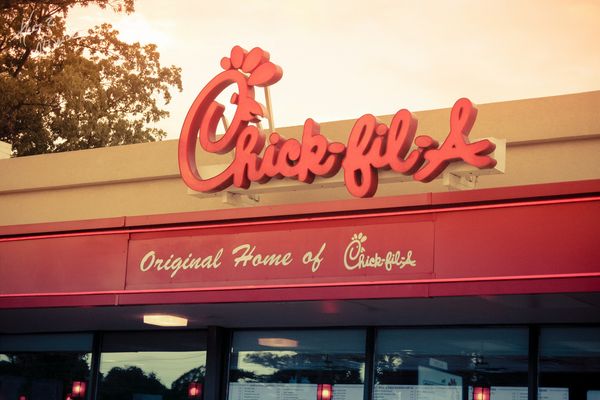When is the last time you finished everything on your plate? When is the last time you felt guilty about throwing food away?
Our current culture has made us complacent in ignoring how wasting food here at home affects others, both at home and abroad. I was raised to only take as much as I would use, but in the midst of all-you-can-eat dining halls with unlimited swipes, I've lost sight of this fundamental value.
To conceptualize the extent to which our nation wastes food, imagine ordering a classic medium pizza sliced into 8 pieces. Now, take three of those pieces...and throw them in the garbage can. Then, imagine one of your eight neighbors who may be struggling to put food on the table. When the problems we face get personal, the issue of food going to waste strikes a little closer to home.
The National Resource Defense Council claims that 40% of food goes to waste and that one in eight families struggles to put food on their plate. At face value, the most ideal solution seems to be to minimize waste so that struggling families can eat, and it really is just that simple.
Here are a few of the factors that contribute to food waste and simple solutions to fix them
1. We don't know much about food safety - we would rather choose to be safe rather than sorry when it comes to most of our food, and throw it out before it is not fresh enough for consumption. The truth is, other than infant formula bottles which effectively have a "poisonous after" date, the rest of what we consume has no such definite date of expiry.
2. We can afford to throw food away - here in America the majority of us don't feel the financial burden if we throw away a few items that didn't get eaten in time. We can easily afford to throw it away without a dent in our conscious. However, using an application such as Grocery IQ can help you better visualize what is you're buying and throwing away on a weekly basis.
3. Our good intentions go bad - no one goes out and buys food with the intention of wasting it. Often, we are conditioned to seek out the freshest food available to us when it comes to produce. Then life gets busy and soon those bananas get all mushy and the salad we brought home last week starts to turn all shades of gross. For times when this does happen, turn to compost piles.
This past summer I created a compost pile in which I place all organic food products that goes to waste in addition to fruit and vegetable peels. Compositing is a productive way to utilize trash in order to provide other organisms with fresh new ways to survive. It's quite easy to dig a compost hole and to be safe, place a net over it to avoid attracting any unwanted guests.
Crying over spilled milk is rarely worth it, but when it comes to the food that gets wasted, it certainly is.



















